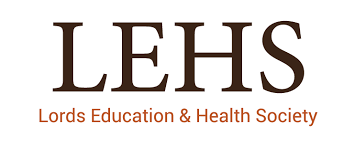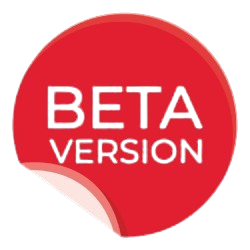
RFP - For Study on Stakeholder Perceptions and Use of the AI-powered Oral Reading Fluency (ORF) Tool in Gujarat
- Date of Issue: 10-11-2025
- Last date of submission: 18-11-2025
Tender Description
REQUEST FOR PROPOSAL (RFP)
For Study on Stakeholder Perceptions and Use of the AI-powered Oral Reading Fluency (ORF) Tool in Gujarat
Closing Date for Submission: November 18, 2025, at 23:59 PM
I. INTRODUCTION
Lords Education and Health Society (LEHS), registered under Societies Registration Act XXI of 1860 is a charitable organisation with its head office in New Delhi, India working in the health, agriculture and education domain for the poor. LEHS in furtherance of charitable objectives through its flagship unit i.e. Wadhwani AI aims to build equitable and sustainable systems to the underserved population and to bring the benefits of modern AI technology to underserved populations by building and deploying AI solutions for social impact across domains such as healthcare, agriculture, governance and education in India.
LEHS aims to promote the integration of technologies, particularly in emerging domains like artificial intelligence and innovations into the Indian mainstream primary healthcare, education, and agriculture systems through a partnership with the State and National Government, apex institutions, international agencies, and private sector partners e.g. innovators, social enterprises and other ecosystem contributors in line with its stated objectives for the betterment of society particularly focusing on projects of national and social significance. In line with its mission to support projects of national and social significance, LEHS also undertakes rigorous monitoring, evaluation, and learning (MEL) activities to assess the impact, usability, and scalability of different programmatic interventions.
II. BACKGROUND
Aligned with the Ministry of Education's visionary NIPUN Bharat mission on Foundation Literacy and Numeracy (FLN) and the National Education Policy 2020, which emphasize improving Oral Reading Fluency (ORF), recognizes that 'Learning to Read' enables 'Reading to learn'. Addressing the pressing challenge that about 60% of Grade 5 students cannot read Grade 2 level text remains a shared priority. While current reading fluency assessments offer value, they are often time-consuming, lack auditability and suffer from inconsistent administration. This presents opportunities for enhancement through standardization and automated systems that can provide more comprehensive reading proficiency insights.
Our collaborative partnership between Wadhwani AI and Gujarat State Government’s Education Department, has successfully deployed an AI-powered ORF application in government schools across the state since December2023. This innovative tool assessed more than 3 million students by analyzing their audio, and generating fluency metrics.
Building on the successful deployment of the AI-powered ORF tool, there is a critical need to conduct a research study to systematically assess its effectiveness. While the tool offers an innovative, scalable approach to addressing foundational literacy challenges, its adoption at scale must be guided by credible
evidence. A structured evaluation will help establish the tool’s usefulness in measuring reading proficiency across diverse geographies. Furthermore, it will assess its influence on student learning outcomes. Moreover, evidence from the study will not only strengthen confidence among educators and policymakers but also inform refinements in both technology design and implementation strategy.
III. Evaluation Objectives
This Request for Proposal (RFP) invites qualified agencies to submit proposals for an independent, rigorous research study to assess stakeholders’ perceptions and experiences with the AI-ORF tool in assessing oral reading fluency among students of grades 3–8 in government schools of Gujarat.
The core objectives of the study are:
- Capture implementation learnings and stakeholder perceptions Document teacher and school-level experiences with the ORF tool, identifying enablers and barriers and contextual factors influencing its use and adoption to inform future scale-up and policy dialogue.
- Explore User Perceptions of the ORF Tool Understand user perceptions of the tool’s efficiency, effectiveness, accuracy, relevance, and usefulness for generating fluency scores and cohortization.
The agency shall ensure that all data remain confidential and are used solely for the purpose of this study, in accordance with data protection and privacy laws.
IV. SCOPE OF WORK
The selected agency is expected to conduct a comprehensive, independent research study in government schools of Gujarat. The primary objective is to assess the perceived effectiveness of ORF tool in assessing the students’ reading fluency.
Note: The ORF deployment was pan-state and simultaneous.
|
Coverage (Till October 2025) |
|
|
Number of districts where the ORF tool has been deployed |
33 |
|
Number of schools where student assessments are conducted |
32,094 |
|
Number of teachers who conducted students assessments |
141,025 |
The agency will be responsible for
- Study Design and Sampling: Designing the overall research study, ensuring appropriate statistical representation through a robust sampling methodology, and finalizing the execution workflow and analytical plan in consultation with Wadhwani AI.
- Primary Data Collection: Conduct a mixed method study in the sampled schools to explore implementation experiences, usability, and perceived effectiveness and impact of the AI tool. The study will also assess how the outputs from the ORF tool are utilized by various stakeholders to inform decision-making aimed at supporting students’ in improving their reading fluency. It will also examine stakeholder’s awareness, acceptance, and satisfaction of the AI tool. The research design can be informed by frameworks such as the Technology Acceptance Model (TAM), UTAUT, or Brinkerhoff’s Success Case Method.
Furthermore, the agency must develop a detailed quality assurance protocol, train field teams, and execute the study under strict ethical considerations. Institutional Ethics Committee (IEC) clearance is required.
The contract period will be till March 15, 2026.
Proposal Submission Guidelines
Who Can Apply
Non Profit Organizations, Business firms/for Profit Organizations with:
- Proven prior experience in conducting large-scale research study or evaluations in the education sector, preferably in government school systems.
- Strong expertise of quantitative and qualitative evaluation methodology
- Adequate human resources, technical expertise, and institutional capacity to carry out statewise study.
- Experience with government or donor-funded education projects
- Data security and privacy protocols in place.
Submission Details
- All responses to this RFP must be received no later than November 18, 2025.
- The technical and financial proposal should be submitted separately only through e-mail in PDF in the below-given e-mail id: rfp.lehs@wadhwaniai.org.
The email's subject line must contain the reference number and title of the RFP: Technical Proposal for ORF Research Study (Gujarat) and Financial Proposal for ORF Research Study (Gujarat). Only those who submit complete technical with password protected financial proposals and all mandatory enclosures (Section VII) will be considered.
For detailed information, please check the complete version of the RFP attached below.
Job Email ID: rfp.lehs(at)wadhwaniai.org
Download Attachment: RFP for Study on Stakeholder Perceptions and Use of the AI-power.pdf
